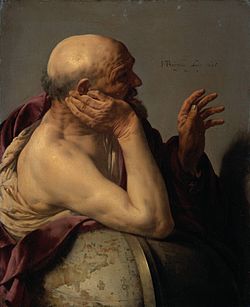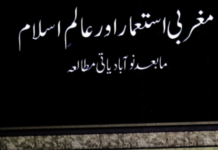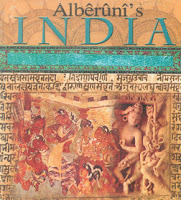A Further Study of Heraclitus-Urdu
هرقلیطوس افیسوسی قدیم یونانی فلسفی کے نظریات کا جائزہ متاخرین کی نظر میں
Heraclitus (535 – 475 BCE) lived in Ephesus. He was known as ‘the Obscure’ because he expressed his thinking with phrases that are often difficult to interpret. This video will explain A Further Study of Heraclitus-Urdu. His main points were:
- Fire is the principle from which everything proceeds.
- Panta rhei. In Greek, panta rhei means ‘everything flows‘. Life is a continuous change. This is the essential point of the doctrine of Heraclitus.
Sartre Says that Self does not Exist?
Humanity is a work in progress, ever-changing, according to Heraclitus. Sartre had ontological proof that confirms the existence of God. This proof can be found in “Being and Nothingness.” Sartre was never able to completely rid himself of his Catholic upbringing. Despite his isolation, his philosophy is strikingly religious. “Being-for-the-other” is a transposition of the Golden Rule. The self doesn’t become fully realized until it is united and merged with the supreme consciousness.

Hegel and the Greek
According to Hegel, Heraclitus is the first to recognize the dialectic as a principle, thereby surpassing and advancing beyond Parmenides. Hegel clarifies: “Being, as Parmenides thinks it, is the one, the first; the second is becoming – by this determination, does he (Heraclitus) go further. This is the first concrete, the absolute in which the oppressed are united. With him (Heraclitus) for the first time is the philosophical idea in its speculative form encountered” (a.a.O.S. 328) Hegel thus rests the power of his interpretation of Heraclitus on the statements in which the dialectical, the unity, and the unification of contradictions come to language.
The Death of Heraclitus
The dropsy' Heraclitus suffered from would, today, be known asedema’ a swelling of soft tissue due to an accumulation of fluid beneath the skin. It was typical of Heraclitus to pose his problem to the doctors in a riddle as it seemed he was always testing others in the belief that he possessed above-average intelligence. When they failed to understand his request that they `make a drought out of rainy weather’ to mean he was suffering from dropsy, he, also typically, decided he knew best how to cure himself.
The Contrasts Between Heraclitus and Parmenides
We see here, therefore, two thinkers of classical antiquity who developed ideas that seem contrary. On the one hand, we have Heraclitus, the defender of eternal change and continuous movement, on the other hand, we have Parmenides, who asserted that what exists is eternal, always identical and immobile.
| Philosophy Subject | Heraclitus | Parmenides |
| On the World | There is a perpetual change. | There is no change, the world stands still. |
| On the Knowledge | As consequences change perpetual change, the way to reach the knowledge also changes. | There is only one way to reach the knowledge, the way of the truth and it is always the same. |
Note: This article was originally published on our related blog. We have merged content from our educational subdomains to provide easier access in one place. The original post is still available at: https://videos.urdutubes.com/2019/04/a-further-study-of-heraclitus-urdu.html
All content is owned and authored by us, and redistribution or reuse is not allowed without permission.
Note: This post is part of our content merger from multiple educational subdomains. To access the original content, visit: books.urdutubes.com for book-related content, PDFs, and downloads, or videos.urdutubes.com for video-related posts. All content is owned and authored by us, and redistribution or reuse is not allowed without permission.




![Khawateen Digest February 2025 [Download PDF] Khawateen Digest – February 2025 Edition: A Must-Read for Every Woman! The February 2025 issue of Khawateen Digest is packed with engaging stories, insightful articles, and practical tips that cater to the modern woman. From inspiring tales to expert beauty and health advice, this edition has it all. Whether you're in the mood for a gripping story or seeking helpful tips for daily life, this digest will keep you hooked. Don't miss out on the latest edition – download the Khawateen Digest February 2025 now and enjoy a well-rounded read that speaks to every woman's interests.](https://www.urdutubes.com/wp-content/uploads/2025/04/Khawateen-Digest-February-2025-Download-PDF-218x150.jpg)
![Khawateen Digest January 2025 [Download PDF] Khawateen Digest January 2025 [Download PDF]](https://www.urdutubes.com/wp-content/uploads/2025/04/Khawateen-Digest-January-2025-Download-PDF-218x150.jpeg)
![Kiran Digest April 2024 [Download PDF] Kiran Digest April 2024 [Download PDF]](https://www.urdutubes.com/wp-content/uploads/2025/04/Screenshot-2025-04-13-113317-218x150.png)
![Kiran Digest March 2024 [Download PDF]](https://www.urdutubes.com/wp-content/uploads/2018/05/KiranDigestMay2018255BDownloadFreePDF255D.jpg)







